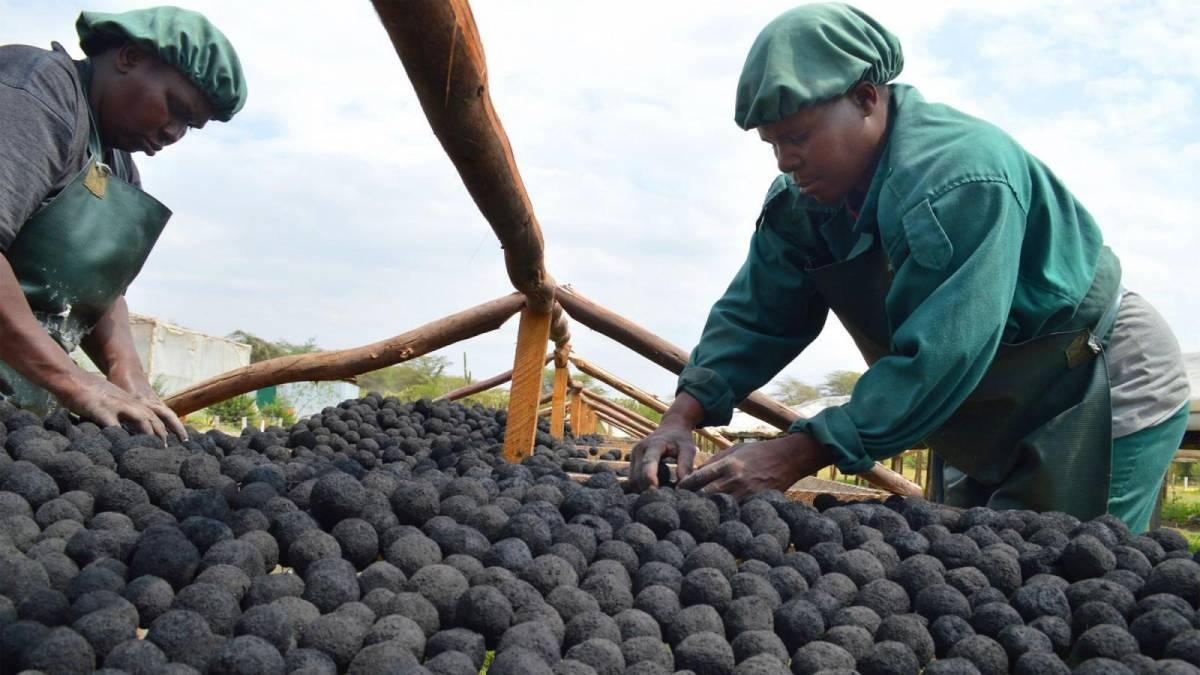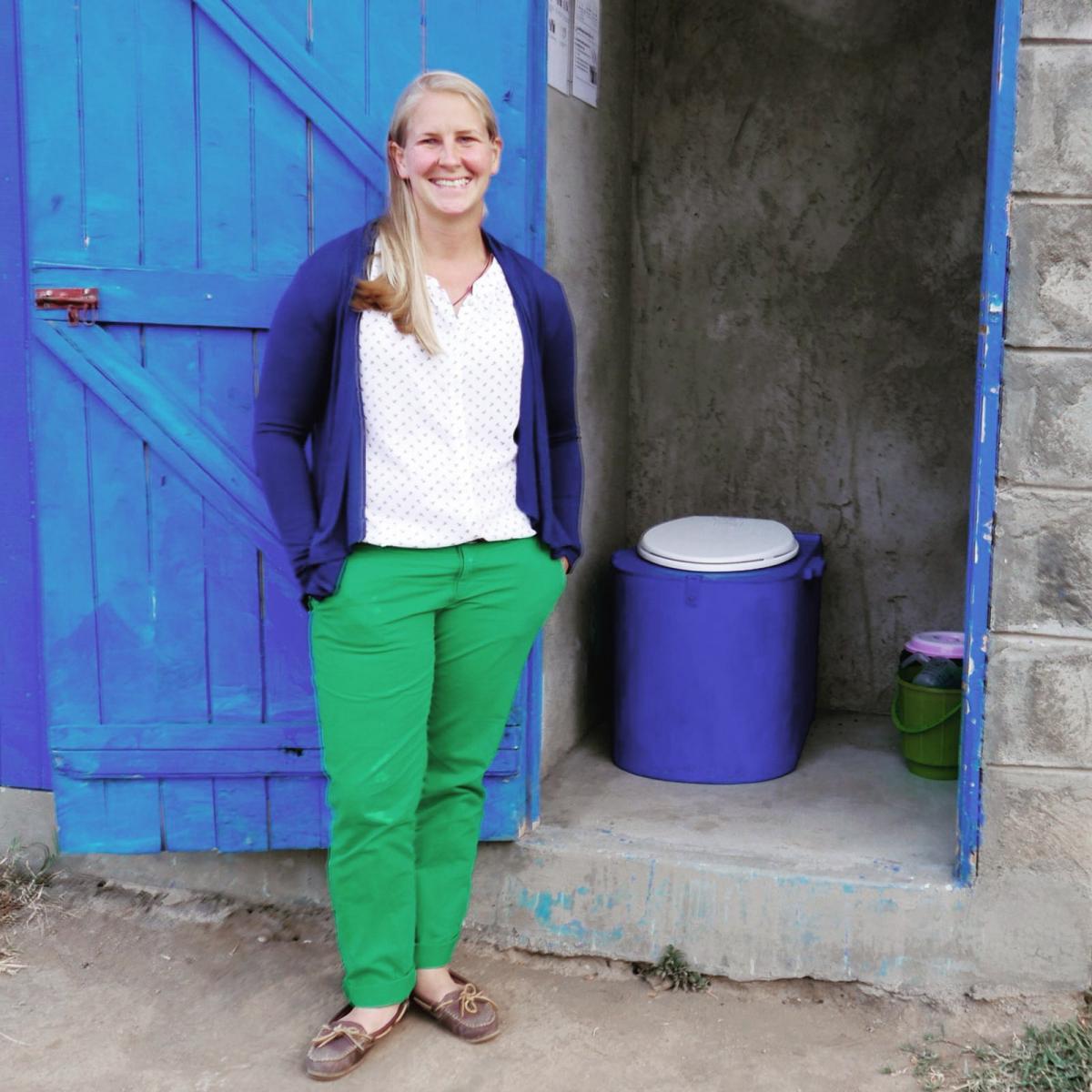Sanitation startup in Africa turns waste treatment processes into fuel

Emily Woods was scrubbing the inside of a fuel tank one day when her life’s purpose suddenly crystallized.
It wasn’t the shipboard janitorial duties that called to her, but they did lead her to a critical realization.
“I laughed and thought, ‘You couldn’t pay me enough to do this, but if it’s going to help someone, I don’t need to be paid a cent.’ At that point, I knew a life of service was for me,” said Woods, who would go on to finish a degree in mechanical engineering at Georgia Tech. “I got an engineering degree so I could go anywhere in the world and make a difference in people’s lives.”
Woods found herself in that fuel tank between her second and third year at Tech. She had taken a year off to work on a nonprofit ship that sailed around the world delivering books to underserved communities without access to education. On the ship, Woods oversaw the cleaning and maintenance of fuel tanks, septic works and chimneys.
When she returned to Tech, Woods (Mechanical Engineering, 2010) wanted to keep getting her hands dirty — figuratively, anyway — and spent time doing research at the Georgia Tech Research Institute. One of her projects involved the solar treatment of human feces, which was thought to be a more energy- and cost-efficient method for treating waste in developing nations lacking modern sewage-treatment systems. Without underground pipe systems to control and manage waste, feces are often dumped into the street, which can create all kinds of public health problems.
Woods met Andrew Foote (EnvE, 2011) in Engineers Without Borders, and together they took the waste treatment research and applied it to a startup accelerator program in Chile under the name Sanivation. They worked to secure funding, develop a business model and begin prototyping, Because Chile had a working sewage system in most parts of the country, they quickly saw that it wasn’t quite the right market for their ideas. They decided to jump continents to Kenya in 2013 where they suspected their approach would be in higher demand.
It was.
Today, Sanivation is a growing company with 75 employees and an approach that makes families healthier by improving their household sanitation and using their waste to make cleaner-burning cooking fuel. They call themselves a socially minded, for-profit company dedicated to improving the overall dignity, health and environment of urbanizing communities in East Africa by delivering clean, safe and efficient sanitation services.
To do that, Sanivation provides toilets to families that do not have one. For a small monthly fee, a company employee goes to the house twice a week to collect the waste from the toilet. It’s transported to Sanivation’s treatment site, where the waste is transformed into affordable, cleaner cooking fuel. Solar energy combined with low-cost infrastructure technology allows the company to be sustainable and rapidly scale.
“Sanivation is growing really fast,” Woods said. “We hope to one day be the go-to sanitation provider for non-sewage systems. Right now, we have three factories that are all operating within cost margins, and we want to expand to nine more in the next three years.”
Woods said it’s critical to be working within the communities you want to serve so you can understand the customer demand and business model that’s going to be successful. It wasn’t until she moved to Kenya that she discovered how big an issue fuel was for the community.
“The people of Kenya spend so much money on fuel that even daily cooking is difficult,” she said. “When we realized this and heard about the issues from the community, we realized that we needed to design a solution that solved that problem. And turning feces into a viable fuel was the solution.”
Sanivation has grants and contracts from National Geographic, the CDC in Kenya, Grand Challenges Canada and USAID. Woods said contracts are now coming in from refugee camps, where they install and service toilets as well.
“The fuel revenue is adding up, and the factories are becoming net positive,” Woods said. “This is really exciting, because that is really hard to do in the sanitation world. A lot of our growth and expansion will come from grants, and we will probably do a series A next year, our first significant round of venture capital financing.”
Woods says the community was skeptical of Sanivation at first, not sure if the company would stick around — many aid groups come to Africa and leave shortly after a project starts. But with three years of operations under its belt, the community is starting to trust the company, providing candid feedback about what’s working or not working for them.
Sanivation is also providing employment opportunities for the community — almost all of its 75 employees are from Kenya and surrounding countries. Typically, in Kenya, less than a third of employees in the field are women; Sanivation boasts a 47 percent female workforce, a point of pride for Woods.
“We want to serve more than one million people by 2020,” Woods said. “And to do this, we’ll continue to deliver health and hygiene products to the doorstep of our customers across Africa.”
